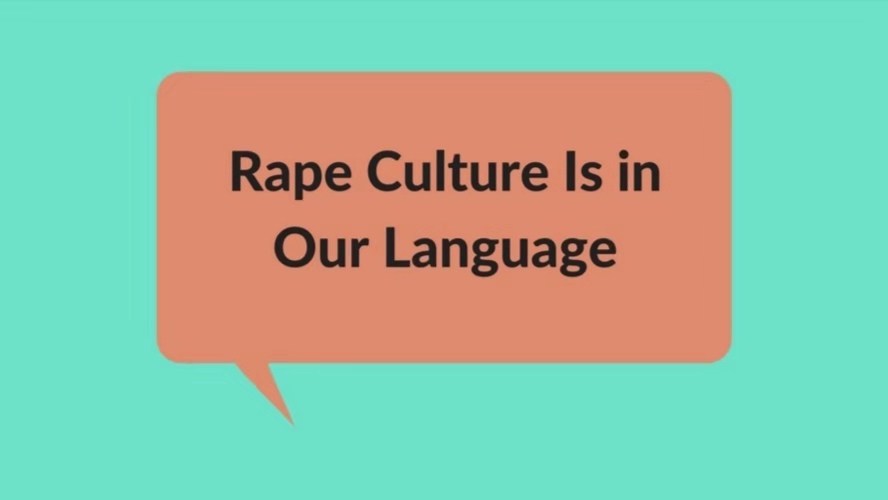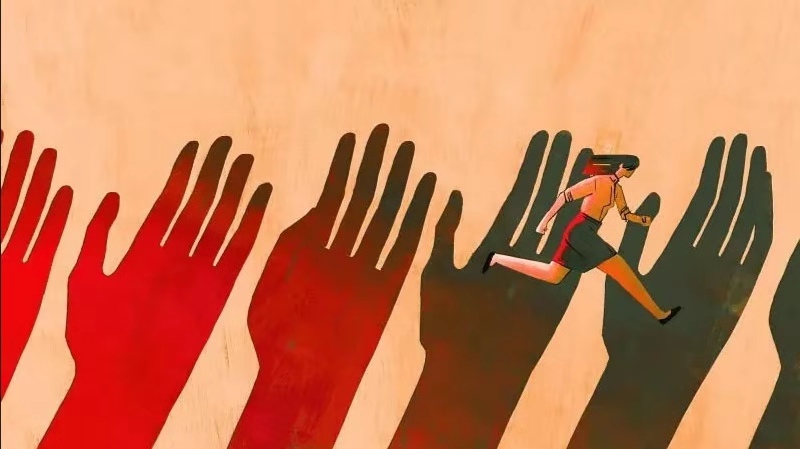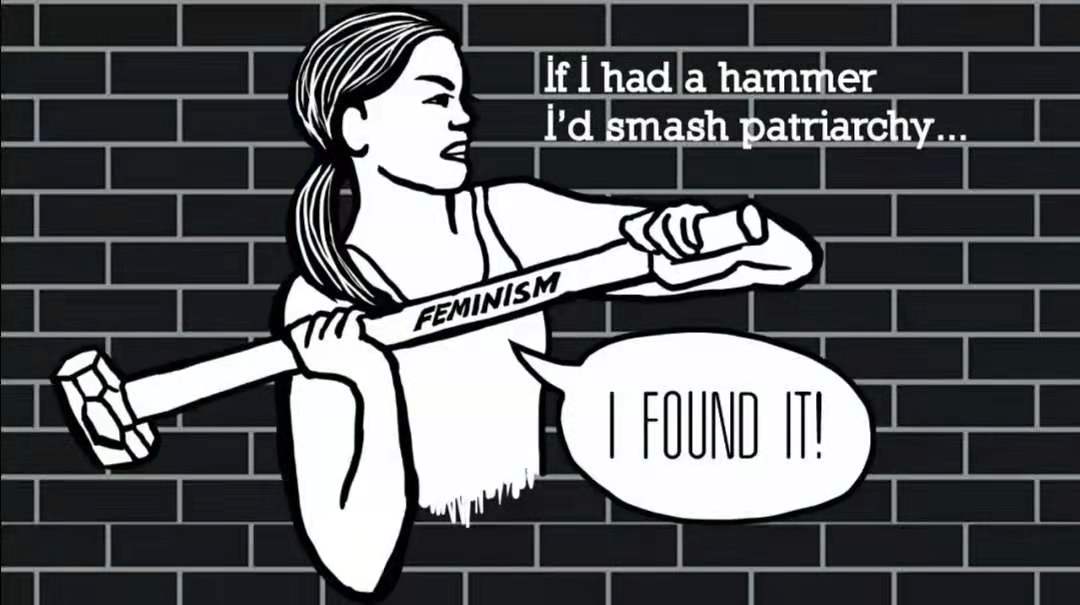More women are choosing to share their experience of sexual assaults online. Is this an empowering move for women or does it risk trial by media that could lead to a miscarriage of justice?
Yunxiang Gao is one of China’s most famous actors, a handsome 36-year old who has starred in TV series such as Goddess of Mercy and Legend of Mi Yue. So, when he was arrested in Sydney last year on suspicion of sexually assaulting a female co-worker, his legion of fans was horrified.
When the accusation against Gao was reported back in China, many of them headed online to defend him, suggesting that “a handsome man like him wouldn’t need to rape”. Instead of showing sympathy for the victim, public opinion doubted the victim suggesting the so-called assault had been set up to extort money from the actor.
Later, a Chinese billionaire Qiangdong Liu, the founder of e-commerce website jd.com, was accused of sexual assault by a Chinese student during his stay at the University of Minnesota Twin Cities. After the news was spread back to China, it immediately set off a huge wave of discussions that tend to blame the victim.
What’s worse, a photo that seemed to be the survivor of Liu’s case went viral on the internet. People compared and evaluated the appearance of hers with Liu’s wife in order to shame and blame the victim. However, the photo turned out to be fake news, the true identity and photos of the victims have never been revealed.
This orgy of vilification shifted the focus of the incident from the men to the two women who were wrongly accused. In contrast, both Qiangdong Liu and Yunxiang Gao have found that online comments have been extremely tolerant and forgiving.
Many people struggle to believe that billionaires and famous actors would ever need to commit a crime of this nature. “They don’t understand why would Liu needs to rape, so it has to be a trap,” said Yuan Feng, the co-founder of the Equality, a charity that aims at protecting women’s rights and achieving gender equality.

The typical narrative of a ‘badger game’ is that men with power, wealth, status and reputation are lured into the fraud by sexual hints or interactions. Women would exploit men’s fear of being caught to get money. Otherwise, they will call the police to retaliate against men. The unequal power relations within the incident and the gender bias that exists in the society are all ignored. The story is only based on two factors: the female’s sexual connotation and their demand for payment.
Unfortunately, such a narrative could be frequently seen in sexual crime reporting, according to Sipan Li, a senior media expert in women’s issues. “When journalists question the survivors of ‘lack of self-respect’, they would never question whether they are ‘objectivity’ because that’s strongly supported by social stereotypes,” explained Sipan Li.
As a result, feminists started a new movement to challenge those stereotypes on China’s leading social media platform, Weibo, with the hashtag “I’m not a perfect survivor either”. Women could share their own experience of being sexually assaulted. For example, some trusted acquaintances or didn’t reject them decisively, some feared of pressing charges, or even wanted to remain polite and friendly with the perpetrator after the incident.
Behind those stories is the highly consistent “imperfections” of the survivors. According to Jinyu Sun, a researcher at the University College London, who has been studying women movements in China, the aim was to challenge rape myths in China. “These stories of imperfect survivors attempt to re-establish the ‘empathy’ destroyed by the narrative of the badger game and break the wrong imagination people hold towards sexual assault for a long time,” said Jinyu Sun.

However, the control of public opinion in China makes this battle extremely difficult. As the hashtag continued to heat up, on 30th April, initial accounts that posted the campaign of “I’m not a perfect survivor” was permanently blocked. Meanwhile, though the topic has been read more than sixteen million times and discussed more than 20,000 times on Weibo, and the Guardian from the UK and the Initium Media from Hong Kong had already reported the campaign, the official media agencies in the mainland of China kept silent collectively.
Under such circumstances, some social media accounts opened by female media workers started to publish their own kind of sexual assault reporting on social media platforms, aiming at protecting the survivors from being stigmatised.
One of the primary purposes of such reporting is protecting survivors from secondary damage. According to Sipan Li, victims of sexual assault suffer the deepest stigma, so there is a great need for someone to represent her voice. “The news is not about supervising the survivors, they are just ordinary people who don’t know the right way to spread ideas on the internet, nor have the access or the ability to fight back, said Sipan Li, “So, they need us to help take the focus of the public away from the old footholds such as the consumption of Pathos, the consumption of sexuality, the consumption of women’s bodies, and bring it back to a legal framework.”
Feminists also reckon the way they report sexual crimes as the process of empowering the survivors. According to Yuan Feng, a worker for women’s rights, the empowerment existing in the use of language, which should reflect the survivors’ initiative. “You can’t say ‘victim admitted something because that would imply that the victim is also partly responsible, it’s better to use words like ‘share’ and ‘disclosure’, which could embody the survivors’ subjectivity,” said Yuan Feng.
Also, though the word “victim” accurately shows the injuries experienced by the person who suffered sexual assault, it represents the victim as a very passive object who need people to sympathise. “In fact, the exposure of many cases and the achievement of justice are because that many survivors fought actively,” said Yuan Feng, “the word ‘victim’ does not show their courage, it is better to use some other words to represent it in different contexts to show that survivors are making efforts to change their life,” said Yuan Feng.

Although such way of reporting sexual crime seems to be an excellent way to enable the public to hear more from the survivors, as a new form of reporting sexual assaults, empowered reporting is facing several challenges.
Firstly, some people doubt that empowering the survivors would result in media trials. Some people worry if media workers report cases with prejudgements and prior hypothesis bias, identifying defendants as criminals in the first place, their tendency will affect public opinion and stimulate populist storm, and interfere with the judicial organs to hear cases fairly. Yu Liu, a famous writer, once called the behaviour of feminists “free airing of views, great debates and big-character posters” and appealed to survivors of sexual harassment to defend their rights through legal channels.
Nevertheless, a social consensus that public figures must cede some of their privacy rights for enjoying more social privileges is used to defend the feminists. Xiaoli Tai, an assistant professor of journalism at the Communication University of Zhejiang, argues that media trial could only be applied in the case in which both parties are ordinary people, exposing misconducts of celebrities on the internet is not media trials. “When the defendant is famous, we can’t say that’s media trial, they have great power to manipulate the public, it’s impossible for ordinary people to win without the media.”
Secondly, people may have questions towards the objectivity of such news reporting because the reporters are taking the standpoint of feminism. However, Meili Xiao, another women’s rights activist, believes that though using news reporting to empower survivors should aim at promoting the women’s movement, but that’s not necessarily mean they would sacrifice the objectivity. “Objective is not depended on which side you are, it should exist in the process of writing, you have to use the evidence to prove what happened, even when you want to write about the feeling, if the survivor feel disgusting, you should write ‘she vomited’, that’s the fact, which is definitely objective,” said Meili Xiao.
Thirdly, to obtain a good spread result, women’s empowerment reporting usually adopt the form of storytelling, which would contain detailed descriptions, which makes some people worry that there is a potential invasion of privacy. In this regard, Meili Xiao thought that depend on the writer’s purpose to disclose that detail. “If you just want to show off, that you get a lot of information from the survivors, then it’s unnecessary, but if you write down the detail as a proof, or you want to help people understand the seriousness of the incident, then the detail is a plus for your article,” said Meili Xiao.
For example, a detailed description of the psychological activities of the survivors can be particularly helpful for readers to understand why they endured it without the struggle. According to Yuan Feng, such specific could help the audience understand a so-called “gentle rape”, which means sexual assault is not always accompanied by intense violence, on the contrary, it often happens in a quiet, obedient and even polite way. “It’s a sexual assault that the perpetrator takes advantage of the survivors’ kindness and puzzlement to pursue his own pleasure, regardless of the survivors’ will, details like that can not only do no harm to the victim but also can serve the function of educating the society and win many readers,” said Yuan Feng.
Apart from the challenges from the outside, there are also debate inside feminists towards the purpose of empowered reporting. One group aim at promoting the improvement of law and building a better ruled-by-law society. “We summarize some experience and put forward some suggestions based on individual cases from the perspective of setting a relatively long-term and more benign mechanism,” said Sipan Li, “We’re trying to show what’s not working in the current system to put some pressure for accountability, making the case go smoothly in the existing legal system.
However, another group believe that they should not focus on the conviction of perpetrator because that seems almost impossible in the current stage, the focus should be spreading the right knowledge about sexual assault and change people’s attitudes toward survivors. “I especially admire the persistence of many readers of our work, they make efforts through constantly commenting or retweeting, that process is like performance art, the core value is advocating what we want to change through communication, interaction and dissemination,” said Yuan Feng.
No matter what, with the awakening of female consciousness and the development of the anti-sexual assault movement, more women start to see the value of keeping records of their experiences. As Xiaoming Ai , a scholar in women and public issues, wrote in one of his article, “Why we need to keep records, because they remind us every day, leading us to think about what attitudes are the result of misogynistic hostility, what media stereotypes exist in the society, and which are myths and fallacies that have long been punctured by feminist cultural criticism.”

